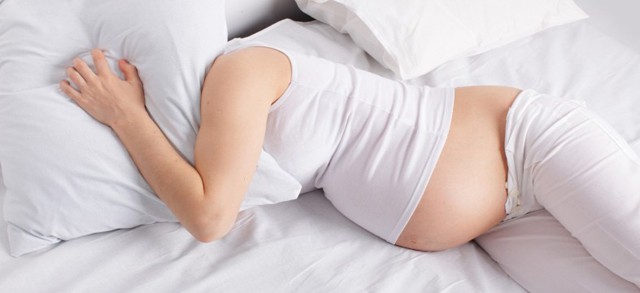Postnatal depression is often talked about in the press, and pregnant women are taught that depression after the birth of their baby is something that is perfectly normal reaction for many women. However, depression during pregnancy (antenatal depression) is less frequently discussed, even though it occurs in roughly one in ten pregnant women.
Although medical experts previously believed that pregnancy hormones were also “happy hormones” and that postnatal depression may happen once these hormone levels dropped, they now believe that the rapid increase in these hormone levels can also disrupt the brain chemistry and lead to the onset of depression during pregnancy. It has long been known that changes in hormone levels can lead to changes in mental health, and it is now though that a sudden influx of pregnancy hormones can leave people feeling happier or more depressed.
Symptoms such as anxiety and depression during pregnancy often go undiagnosed, because people often assume that it is just a temporary moodiness which will quickly pass. If you begin to feel low for longer periods during your pregnancy, it is advisable that you discuss your feelings with your midwife so that he or she can offer you the help and support that you may needs. Stress, anxiety and depression are not only bad for your emotional well-being, but they can also have a negative effect on your physical health, which can impact upon the health of your unborn baby. For example, research has actually shown that anxiety and depression during pregnancy can increase the likelihood of preterm labour.
It is possible for any woman to develop depression during pregnancy, but it is thought that some groups have a higher risk than others of developing antenatal depression. Women with a personal or family history of any type of depression or mental illness are more likely to be affected by this type of depression. People who also have other problems in their wider family are also more likely to develop depression, because their support network may not be as strong. The same is true of women who are in violent relationships. Previous physical health issues including problems with previous pregnancies and fertility issues may also make people more prone to depression. However, you may still find yourself showing symptoms of antenatal depression even if you have a loving, supportive family with no prior history of mental or physical illness.
Although most people will get upset or emotional at some point during their pregnancy, you may be experiencing depression during pregnancy if your feelings last for more than two weeks. A feeling of emotional “emptiness” which last for extended periods are is a sign of depression, as is the sense that nothing could possibly be enjoyable anymore. Even if you do not feel sad or upset, a lack of other emotions could signal depression. Physical symptoms such as a lack of any desire to eat (or the desire to eat all the time) are also one of the signs of depression. If you ever feel the urge to harm yourself, it is important to seek help straight away.


